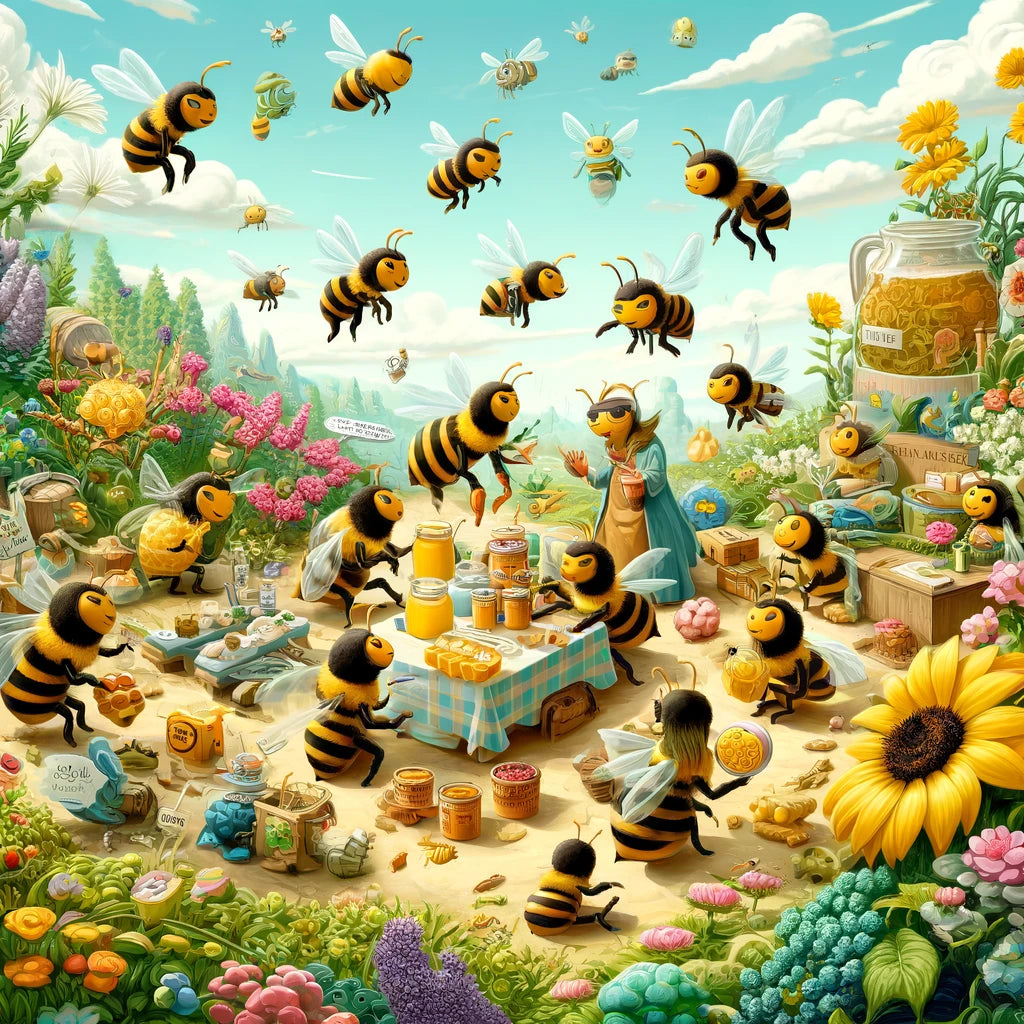Bees, often seen as honey producers, play crucial roles far beyond the hive, offering numerous benefits and advantages that significantly impact human life and the global ecosystem. Exploring the multifaceted benefits of bees reveals their indispensable contributions to agriculture, biodiversity, and even economic sectors.
1. Pollination Powerhouse
At the core of the benefits bees offer is their unparalleled pollination service, which is crucial for producing many plants, fruits, and vegetables. This not only sustains natural ecosystems but also supports agricultural industries, directly influencing the variety and availability of food.
- Food Production: Bees are essential for pollinating over a third of the food crops we consume, including nuts, berries, fruits, and vegetables, enhancing food security and diversity.
2. Biodiversity Champions
Bees contribute significantly to maintaining ecological balance and biodiversity. By pollinating a wide range of plants, they support the growth of natural habitats, which fosters a diverse array of wildlife.
- Ecosystem Support: Their pollination work ensures the survival of wild plants, promoting a rich biodiversity necessary for healthy ecosystems.
- Species Interdependence: Many animal species rely on bee-pollinated plants for food and habitat, illustrating the interconnectedness of our ecosystem.
3. Economic Impact
The economic benefits of bees are immense, with their pollination services contributing billions annually to the global economy. They support agriculture and industries like honey production and beekeeping supplies.
- Boost to Economies: The economic value of bee pollination is paramount, supporting agriculture and horticulture industries worldwide.
- Job Creation: Bee-related activities, including beekeeping and research, provide employment opportunities and contribute to economic growth.
4. Health and Medicine
Bees impact human health by producing honey, royal jelly, propolis, and beeswax, which have been used in traditional medicines and are gaining recognition in scientific communities.
- Natural Remedies: Honey and other bee products are celebrated for their antibacterial, anti-inflammatory, and wound-healing properties.
- Nutritional Value: Honey is a natural sweetener rich in antioxidants, offering health benefits when consumed in moderation.
5. Environmental Indicators
Bees act as environmental indicators, providing insights into the health of our ecosystems. Changes in bee populations can signal alterations in environmental conditions, prompting action to address issues like climate change and pollution.
Climate Change Monitors: Declines in bee health and populations can indicate broader environmental stresses, offering crucial data for climate change research.
6. Education and Research
The study of bees offers valuable educational opportunities, fostering a greater understanding of ecological relationships and the importance of conservation efforts.
- Scientific Insights: Research on bee behavior and biology contributes to our ecology, genetics, and conservation science knowledge.
- Conservation Awareness: Beekeeping and educational programs raise awareness about the importance of bees and the need to protect them and their habitats.
7. Supporting Sustainable Agriculture
Bees play a pivotal role in promoting sustainable agriculture practices. By encouraging the growth of various crops through pollination, bees help create more resilient and sustainable farming systems.
These systems are less reliant on synthetic fertilizers and pesticides, reducing environmental pollution and improving soil health. Furthermore, sustainable agriculture practices supported by bee pollination contribute to food security by increasing the yield and quality of crops.
This, in turn, supports local economies and reduces the need for resource-intensive farming practices that can harm the environment. In promoting sustainable agriculture, bees help ensure the longevity and health of our agricultural lands and support future generations' well-being.
Conclusion
The benefits of bees to humans and our planet are both vast and vital, extending well beyond their role in producing honey. As pollinators, they are indispensable in supporting the diversity of our diets, underpinning agricultural economies, and maintaining the health of ecosystems. Their contributions to biodiversity, economic stability, health, and environmental monitoring highlight the profound interconnection between bees and life on Earth.
Acknowledging these benefits is crucial, as is taking action to protect bees through sustainable practices, conservation efforts, and the use of bee-friendly products like Swarm Commander Premium Swarm Lure.
By safeguarding the well-being of bees, we preserve these incredible benefits and ensure the sustainability of our future. As we continue to uncover the surprising ways bees benefit humans, let us commit to actions that support their thriving populations for generations to come.
Frequently Asked Questions About The Benefits of Bees
Q: How can planting a garden benefit bees?
A: Planting a variety of flowering plants provides bees with essential nectar and pollen, supporting their nutritional needs and aiding their pollination work.
Q: Are all bee products beneficial for health?
A: Yes, bee products like honey, propolis, royal jelly, and beeswax have unique health benefits, from antibacterial properties to antioxidants, though their effects can vary among individuals.
Q: How do bees contribute to fighting climate change?
A: Bees support the growth of plants and trees that absorb carbon dioxide, a greenhouse gas, thus contributing to carbon sequestration efforts and combating climate change.
Q: Can individuals make a difference in protecting bees?
A: Absolutely. Simple actions, such as planting bee-friendly gardens, avoiding pesticides, and supporting local beekeepers, can significantly impact bee populations and habitats.



